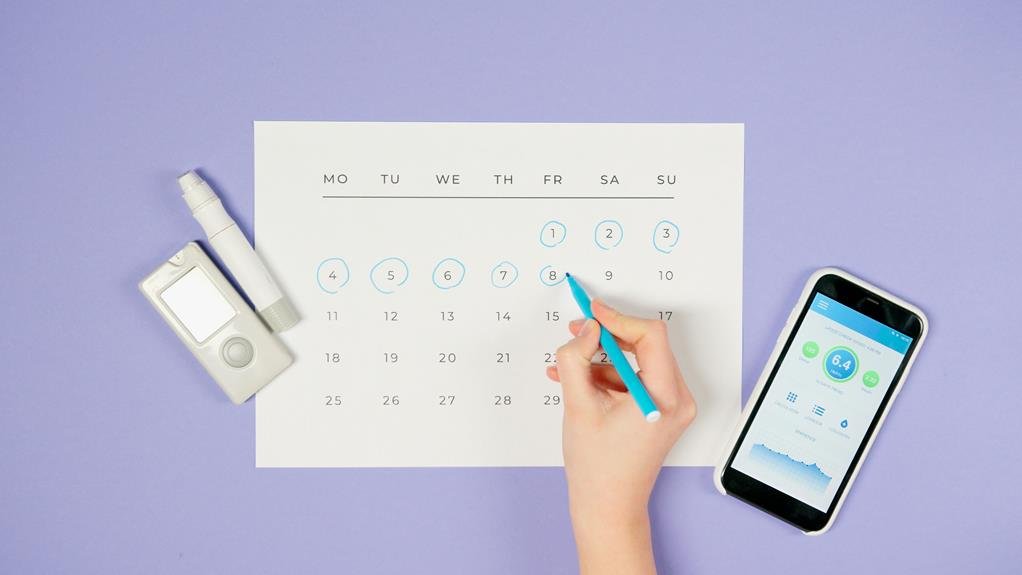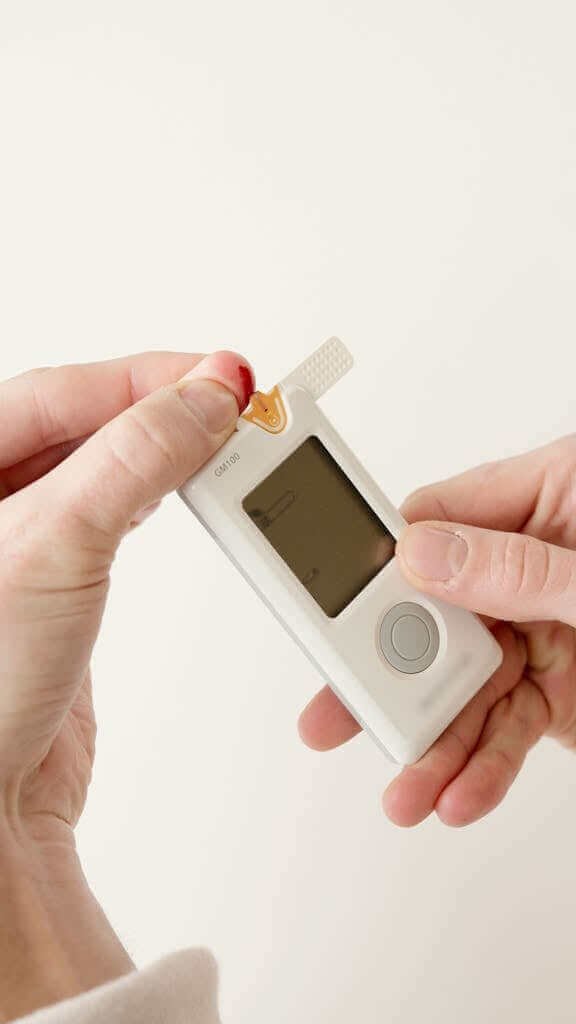How to Manage Diabetes Neuropathy Pain: Effective Strategies
Did you know that nearly half of all individuals with diabetes will experience diabetic neuropathy pain at some point? Managing this type of pain can be challenging, but there are effective strategies that can help improve your quality of life.
From lifestyle modifications to medical treatments and therapies, there are various approaches you can take to alleviate discomfort and regain control.
Stay tuned to discover practical tips that can make a significant difference in managing diabetes neuropathy pain and enhancing your overall well-being.
Understanding Diabetic Neuropathy Pain
If you have diabetes, you may experience diabetic neuropathy pain, which is a type of nerve damage caused by high blood sugar levels. This pain can manifest in various ways, such as tingling, numbness, burning sensations, or sharp pains in your extremities. It occurs due to prolonged exposure to high glucose levels, which damages the nerves that send signals to your brain about sensations in your body.
Diabetic neuropathy pain can affect different types of nerves in your body, including sensory, motor, and autonomic nerves. Sensory nerves control sensations like touch and pain, while motor nerves control muscle movement. Autonomic nerves regulate bodily functions like digestion, heart rate, and blood pressure. When these nerves are damaged, it can lead to complications such as foot ulcers, infections, and even amputations if not managed properly.
Understanding the specific type of diabetic neuropathy pain you're experiencing is crucial for effectively managing the condition. By working closely with your healthcare provider, you can develop a personalized treatment plan to alleviate symptoms and prevent further nerve damage.
Lifestyle Modifications for Pain Management
To effectively manage diabetic neuropathy pain, implementing lifestyle modifications plays a crucial role in alleviating symptoms and improving overall quality of life. Making simple changes in your daily routine can significantly help in managing the discomfort associated with diabetic neuropathy. Regular exercise, such as walking or swimming, can improve circulation and reduce pain. Maintaining a healthy weight through a balanced diet can also lessen the pressure on your nerves and lower inflammation levels.
Additionally, managing stress through relaxation techniques like deep breathing or meditation can help alleviate neuropathic pain.
Avoiding smoking and limiting alcohol consumption are also essential lifestyle changes that can positively impact neuropathy symptoms. Smoking can constrict blood vessels, worsening circulation and nerve damage, while excessive alcohol intake can exacerbate nerve pain.
Ensuring proper foot care by wearing comfortable shoes and regularly checking for any sores or injuries is crucial in preventing complications from diabetic neuropathy. By incorporating these lifestyle modifications into your daily routine, you can effectively manage diabetic neuropathy pain and improve your overall well-being.
Medical Treatments and Therapies
Implementing medical treatments and therapies is essential for effectively managing diabetic neuropathy pain and improving your quality of life.
Medications such as anticonvulsants, antidepressants, and pain relievers can help alleviate nerve pain. Anticonvulsants like gabapentin and pregabalin work by stabilizing electrical activity in the nerves, reducing pain signals. Antidepressants such as duloxetine can also help manage neuropathic pain by altering brain chemicals. Over-the-counter pain relievers like acetaminophen and ibuprofen may provide temporary relief.
In some cases, topical treatments like lidocaine patches or capsaicin cream can be applied directly to the skin to numb the painful area. Additionally, therapies such as nerve stimulation, physical therapy, and acupuncture may offer further pain relief. Nerve stimulation techniques like TENS (transcutaneous electrical nerve stimulation) use electrical currents to disrupt pain signals. Physical therapy can help improve strength and mobility, reducing the impact of neuropathy on daily activities. Acupuncture, by targeting specific points on the body, may also help alleviate neuropathic pain.
Consult with your healthcare provider to determine the most suitable medical treatments and therapies for your diabetic neuropathy pain.
Importance of Physical Activity
Engaging in regular physical activity plays a crucial role in managing diabetic neuropathy pain and enhancing overall well-being. Exercise helps improve blood circulation, which is essential for reducing nerve damage and relieving neuropathic symptoms. By staying active, you can also maintain a healthy weight, lower blood sugar levels, and decrease the risk of complications associated with diabetes.
Aim for a mix of cardiovascular exercises like walking, cycling, or swimming, along with strength training to build muscle and support your joints. Start slowly and gradually increase the intensity and duration of your workouts. Remember to monitor your blood sugar levels before and after exercising to prevent any sudden drops or spikes.
Additionally, physical activity releases endorphins, the body's natural painkillers, which can help alleviate neuropathy pain and improve your mood. Prioritize activities that you enjoy and can incorporate into your daily routine to make them sustainable. Always consult your healthcare provider before starting any new exercise regimen to ensure it aligns with your specific health needs and limitations.
Emotional Support and Stress Management
For effective management of diabetic neuropathy pain, addressing emotional support and implementing stress management techniques is crucial. Living with chronic pain can be emotionally challenging, leading to feelings of frustration, anxiety, and even depression. It's essential to seek emotional support from loved ones, friends, support groups, or mental health professionals. Talking about your feelings and experiences can help alleviate the emotional burden that comes with neuropathic pain.
Stress can exacerbate neuropathy symptoms, making pain feel more intense. Therefore, mastering stress management techniques is vital in your pain management plan. Practices such as deep breathing exercises, meditation, yoga, or progressive muscle relaxation can help reduce stress levels and, consequently, alleviate neuropathic pain.
Additionally, engaging in activities you enjoy, practicing mindfulness, and maintaining a positive outlook can also contribute to reducing stress and improving emotional well-being. Remember, you aren't alone in this journey. Seeking emotional support and managing stress effectively are powerful tools in your arsenal against diabetic neuropathy pain.
Frequently Asked Questions
Are There Any Natural Remedies or Alternative Treatments That Can Help Alleviate Diabetic Neuropathy Pain?
You can try natural remedies like capsaicin cream or alpha-lipoic acid supplements to help ease diabetic neuropathy pain. Consult your healthcare provider before starting any new treatment to ensure it aligns with your overall care plan.
Can Diabetic Neuropathy Pain Be Completely Cured, or Is It a Lifelong Condition to Manage?
Diabetic neuropathy pain is typically a lifelong condition to manage rather than being completely cured. Consistent management strategies, including medication, lifestyle changes, and regular check-ups with healthcare providers, can help control symptoms and improve quality of life.
Are There Any Specific Dietary Recommendations or Supplements That Can Help With Managing Diabetic Neuropathy Pain?
When managing diabetic neuropathy pain, consider dietary changes and supplements. A balanced diet rich in fruits, vegetables, and lean proteins can help. Supplements like alpha-lipoic acid may also provide relief. Always consult your healthcare provider for personalized advice.
How Can I Differentiate Between Normal Aches and Pains and Diabetic Neuropathy Pain?
Pay attention to the characteristics of the pain. Diabetic neuropathy pain often involves burning, tingling, or shooting sensations, along with numbness. If you experience these symptoms, consult your healthcare provider to differentiate between normal aches and neuropathy pain.
Are There Any Specific Exercises or Stretches That Can Help Alleviate Diabetic Neuropathy Pain in Specific Areas of the Body?
To alleviate diabetic neuropathy pain in specific areas, try gentle exercises like walking, swimming, or yoga. Stretches that target affected areas can also help. Consult your healthcare provider for personalized recommendations tailored to your needs.
Conclusion
Managing diabetes neuropathy pain can be challenging, but with the right strategies, it's possible to find relief and improve your quality of life. Just like a marathon runner pacing themselves, taking small steps each day towards managing your pain can lead to long-term success.
By making lifestyle modifications, seeking medical treatments, staying active, and finding emotional support, you can effectively manage the discomfort caused by diabetic neuropathy. Remember, every step forward counts towards a pain-free future.




